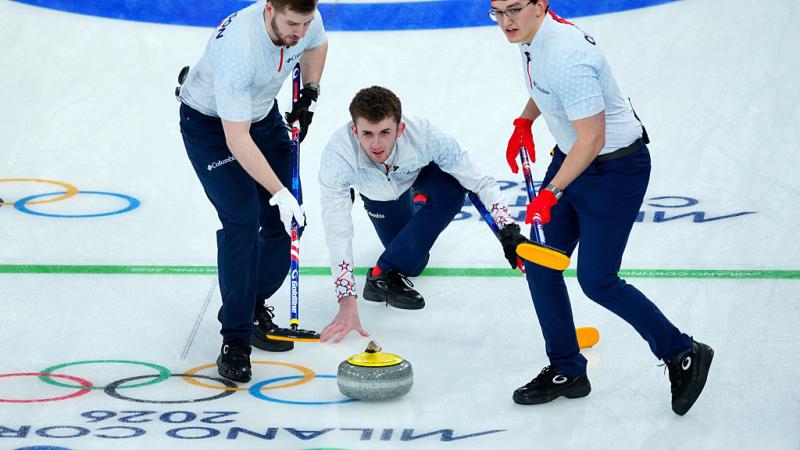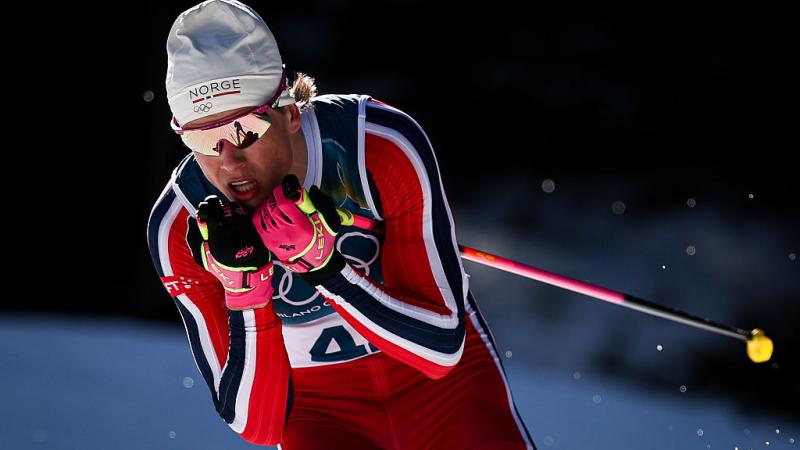As Russia rebuts war crimes claims, an army of researchers aims to prove atrocities occurred
Proving a war crime is difficult, experts said, even with supporting imagery.
As stark reports of alleged Russian war crimes increasingly emerge from Ukraine, Moscow continues to vehemently dismiss the claims — prompting a small army of private citizens to work toward debunking the debunkers.
Reports and images from Bucha depicted particularly gruesome scenes of civilian bodies left for weeks in the streets, sometimes with bound hands or signs of having been tortured.
Russian Foreign Minister Sergei Lavrov this week denied the war crimes claims, evoking language Moscow previously used to dismiss Western concerns about the buildup of Russian troops along the border with Ukraine.
The atrocity claims are "hysteria," Lavrov said, and the evidence from Bucha a "monstrous forgery."
In response to Moscow, civilian researchers are working meticulously to document the atrocities.
The London-based BBC maintains an anti-disinfornation unit that sifts through the war crimes reports.
The work involves "a lot of verification and trying to sort of make sure that what we're seeing is genuine," unit analyst Kay Devlin told listeners Tuesday on the BBC's Ukrainecast podcast.
"It's a really creative process," Devlin said of her methods. "There's no single way to do it."
When looking at images, she said, the first things to check are whether the images are new, and where they were taken. Those questions frequently can be answered via reverse image searches on Google.
"You're looking for clues in the videos or the images," she said. "Is there a street sign? Is there a shop sign that can tell you something about this location?"
Once the location is found, an open-source community on Twitter helps to find potential eye-witnesses.
Imagery also has been used to debunk the war crimes claims, according to Bellingcat, the Netherlands-based investigative group.
"These videos from inside Bucha have also been used by the Russian Ministry of Defence and Russian Ministry of Foreign Affairs to posit that some of the corpses were moving and therefore that the footage was a fabrication," Bellingcat wrote.
The Russian Ministry of Foreign Affairs wrote about the images on Twitter: "During the time Bucha had been under the control of the Russian Armed forces, NOT A SINGLE local resident has suffered from any violent action."
The Russian Ministry of Defense wrote on April 3 that the video images were "a hoax" and "a staged provocation" from Kyiv, aimed at the Western media.
A Russian official, Dmitry Polyanksiy, claimed that the bodies actually were actors and that one corpse "suddenly waves his hand."
The waving hand actually was an illusion created by a raindrop on the screen through which the video was recorded, reported Bellingcat.
Proving a war crime is difficult, Devlin said, even with supporting imagery. The key element is to prove that the perpetrators intended to commit a war crime, she said.
"We can't say for definite that Russians carried this out, and that was an issue when we were trying to stand up war crime allegations as well," she said, adding that "it's very difficult to prove intent and to prove kind of whether a military target is somewhere."
Such difficulties notwithstanding, Devlin assesses that, based on the evidence her team has gathered, it is "very likely that Russian forces carried out this attack."
Russia has been named as the perpetrator of other incidents that drew headlines when they occurred. These include the attack on civilian airliner MH-17, which was shot down over Ukraine in 2014; the poisoning of opposition activist Alexei Navalny in 2020; and the poisoning of former Russian spy Sergei Skripal in Salisbury, England, in 2018. In each case, Moscow insisted that someone else must have committed the misdeeds.
In Ukraine this year, the nonprofit Human Rights Watch says it has documented mulitple cases of Russian military forces committing laws-of-war violations in the regions of Chernihiv, Kharkiv, and Kyiv.
"The cases we documented amount to unspeakable, deliberate cruelty and violence against Ukrainian civilians," said one of the group's directors, Hugh Williamson. "Rape, murder, and other violent acts against people in the Russian forces' custody should be investigated as war crimes."
Regarding Bucha, the U.S. government-funded Radio Free Europe says it has compiled information through social media, photographs, videos, eyewitness accounts, and Russian soldiers' lost cell phones to help create a strong correlation between when the civilians were killed and when Russian forces were in charge of the town.
Seeking an official forum to refute the charges, Russia has called for a U.N. Security Council meeting. Officials made the request "in the light of heinous provocation of Ukrainian radicals in #Bucha," Polyanskiy tweeted this week.
Western investigators say they will continue to research the claims.
"Debunking what appears to be false and providing full context is therefore vital to ensure a full picture is presented," Bellingcat wrote.














